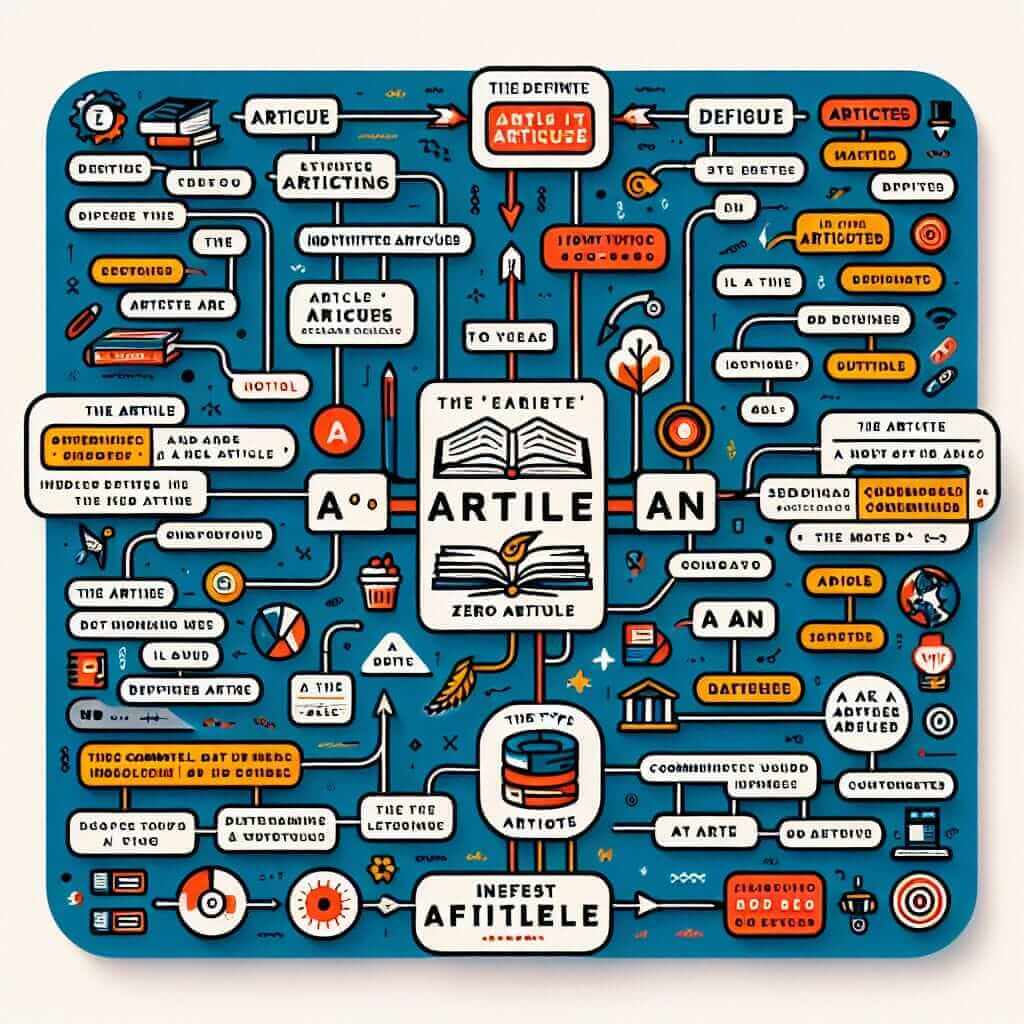Articles, those seemingly small words “a,” “an,” and “the,” often trip up IELTS test-takers. While they may seem insignificant, mastering their usage is crucial for achieving a band score of 7 or higher. In this comprehensive guide, we’ll delve deep into the intricacies of articles, equipping you with the knowledge and strategies to use them confidently in your IELTS exam.
Let’s illustrate the importance of articles with a few examples:
Example 1: (Speaking – Part 2)
“Describe a time you visited a new place.”
Here, “a” indicates a singular, non-specific time and place.
Example 2: (Writing Task 2)
“The internet has revolutionized the way we communicate.”
“The” is used before “internet” as it refers to a specific, universally known entity.
Example 3: (Listening – Section 3)
“An understanding of basic statistics is essential for this course.”
“An” is used before “understanding” because it starts with a vowel sound.
Understanding the Role of Articles
Articles function as determiners, providing context and specificity to nouns. They signal whether a noun is singular or plural, general or specific, known or unknown to the listener or reader. Their correct usage contributes significantly to grammatical accuracy and overall clarity in your writing and speaking.

Types of Articles and Their Uses
1. Indefinite Articles: ‘A’ and ‘An’
Rules and Usage:
-
Use “a” before words beginning with consonant sounds.
-
Use “an” before words beginning with vowel sounds.
Examples:
- A university (consonant sound)
- An hour (vowel sound, despite starting with ‘h’)
Application in IELTS:
- Speaking: When describing something for the first time. (e.g., “I saw a beautiful painting at a museum.”)
- Writing: When introducing a new concept or object in Task 1 or providing a general example in Task 2. (e.g., “A pie chart is used to illustrate…”)
2. Definite Article: ‘The’
Rules and Usage:
-
Use “the” before a specific noun that has already been mentioned or is known.
-
Use “the” before unique nouns.
-
Use “the” before superlative adjectives.
Examples:
- The book I lent you (specific, previously mentioned)
- The sun (unique)
- The most interesting book (superlative)
Application in IELTS:
- Listening: Pay attention to when “the” is used to identify specific details or key information.
- Reading: Understanding the use of “the” will help you accurately answer specific detail questions.
- Writing: Use “the” to refer back to previously mentioned concepts or when referring to something specific within the given context.
Zero Article: When to Omit Articles
While we’ve discussed when to use articles, it’s equally crucial to understand when they are not required.
Rules and Usage:
-
Do not use articles before plural and uncountable nouns used in a general sense.
-
Do not use articles before proper nouns (names of people, places), abstract nouns, and languages.
Examples:
- Cats are independent animals. (plural noun, general sense)
- Water is essential for life. (uncountable noun, general sense)
- London is a vibrant city. (proper noun)
Application in IELTS:
- Speaking: Using articles correctly in general statements demonstrates grammatical range. (e.g., “People generally enjoy spending time outdoors.”)
- Writing: Avoiding the unnecessary use of articles contributes to a higher score in grammatical range and accuracy.
Common Mistakes and How to Avoid Them
- Using the wrong indefinite article: Remember the sound, not just the first letter, determines “a” or “an.”
- Overusing “the”: Avoid using “the” with plural and uncountable nouns when referring to them in a general sense.
- Omitting “the” when required: Specific, previously mentioned, or unique nouns typically require “the.”
Tips for Mastering Articles for IELTS
- Practice makes perfect: Consciously practice using articles correctly in your speaking and writing.
- Pay attention to articles in sample answers: Analyze how articles are used in high-scoring IELTS responses.
- Read extensively: The more you read, the more you will internalize the natural use of articles.
Conclusion
Mastering articles is not just about memorizing rules; it’s about understanding how they function to create clear, grammatically accurate English. By investing time and effort into understanding and practicing the use of “a,” “an,” and “the,” you’ll significantly enhance your chances of achieving your desired IELTS band score. Remember, consistent effort and attention to detail are key to success in your IELTS journey.